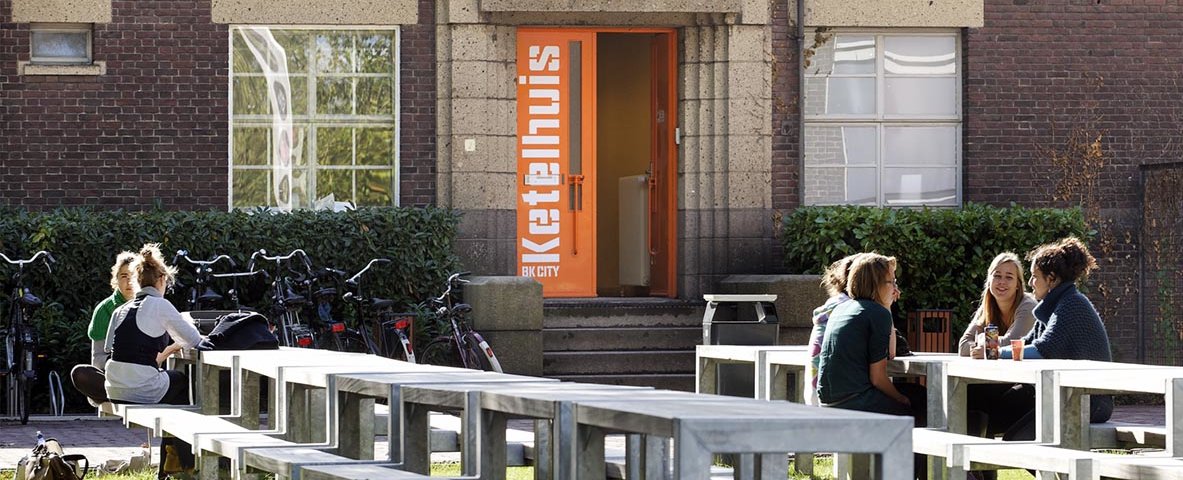Restaurants at the Faculty of Architecture and the Built Environment are the first to offer fully vegetarian menu
Sustainability is a high priority at TU Delft. Not only is it a common thread in many of the university’s education, research and valorisation activities - the university is also taking steps towards making the campus more sustainable. In this regard, the Faculty of Architecture and the Built Environment is the first faculty which offers an entirely vegetarian menu at Ketelhuis starting 3 May. When the coffee corner at the faculty reopens, their assortment will also be fully vegetarian. ?
By 2030, the entire TU Delft Campus aims to be CO2 neutral and circular. To achieve this, a large-scale Climate Action Programme was launched. Moreover, the university's own CO2 emissions have been mapped out in detail*. This map shows that the food consumption of students and staff on the campus is the second largest emitter of CO2 and other greenhouse gases in 2018.
"So, if we are serious about climate action, our food patterns must also change," says Andy van den Dobbelsteen, sustainability coordinator at TU Delft. "The university always had strongly meat-oriented catering. If we switch to a vegetarian and vegan menu, it will save more than half of the food related emissions. Therefore, I am very happy with the initiative of the Faculty of Architecture and the Built Environment!"
This pilot starts at the Faculty of Architecture and the Built Environment because here the demand for more vegetarian options on the menu has increased significantly in recent times.
In cooperation with TU Delft caterer CIRFOOD, a new menu is put together. In this, a good price-quality ratio was an important element. Moreover, they investigated which other opportunities are available for increasing sustainability, such as the packaging of the food and the cutlery.
Not only the menu is different. In the new academic year, a pilot will be launched to test a new layout for the Ketelhuis restaurant. This way, it is possible to offer a wider range of products and at the same time allows a smooth flow of people. The front part of the restaurant will have a 'grab & go' zone, where you can take away sandwiches and savoury snacks. The rear section will be self-service, where a wider range of items such as salads and hot meals can be ordered.
* At the time of the opening of the vegetarian restaurant of the Faculty, within the boundary conditions of the CO2 analysis of TU Delft, it turned out that food consumed on the campus was responsible for around 30% of CO2 equivalent emissions. That value was of the same order of magnitude as the emissions due to gas consumption on the campus and to mobility. At the time, there was no proper insight into the climate effects of procurement (of furniture, equipment, materials and products etc.). In the year 2021, Herth and Blok finished their study of the carbon impact of procurement, which made clear that its value was equal to everything else already charted. Therefore, the eventual relative contribution of food in the total carbon emissions – as with gas and mobility – turned out to be around 15%.
